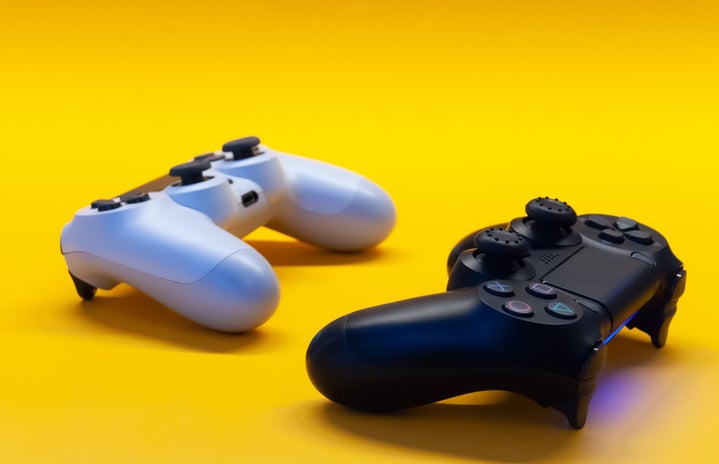I love playing video games – The Last of Us, Uncharted, Red Dead Redemption 2, you name it. Be that as it may, I am very aware of the many sexist and misogynistic ideologies written into some of these games. In fact, “some of the most blatantly sexist representation of women are found today in video games.” Let’s look at the facts.
Too often, female characters are written into games solely for sex appeal. Though there have been some improvements and exceptions over the years (The Last of Us Part II), it remains an issue. Think about GTA V. There are a million things I can say about the portrayal of women in this game, but I’ll only point out one: the first thing you see when you turn on the game is a scantily dressed woman in a bikini. As it so happens, there isn’t a single vital female character in the game.
Let’s say there is an important female character in the game; chances are that she’s dressed to appease the male gaze rather than for practicality. Based on an analysis performed on 47 randomly selected games, the “female characters were more likely to wear low-cut clothing and bare arms than males.” Men wear armour while women wear bras; how’s that good for survival? Just take Jack from Mass Effect 2 – she’s practically naked from the waist up, except for a thin strip of leather going over her chest. Not ideal for a gunfight, if you ask me.
With so many sexist misrepresentations in video games, playing them increases sexist attitudes in the men who play. Studies have proved that playing sexualized video games for just 10-20 minutes can increase a man’s likelihood of supporting gender stereotypes and his acceptance of sexual harassment. As a result, female gamers are constantly subject to discrimination and disrespect when playing video games – they’re hit on, told things like “go back to the kitchen,” and forced to endure countless other demeaning comments that taint the games they should be allowed to enjoy.
In July of this year, Activision Blizzard (the company behind games like Call of Duty and Overwatch), was sued by the state of California for its repeated cases of sexual discrimination and harassment against women in the workplace. The women were exposed to a “pervasive frat boy workplace culture” and faced inappropriate behaviour from their male coworkers such as “cube crawl” events in which the men got drunk and went from cubicle to cubicle to harass them. Sexist attitudes don’t just exist in the games, but they’re ingrained in the industry itself.
These are only some of the underlying issues hidden beneath the video game industry. The women who are a part of it deserve respect, and the community deserves more characters like Ellie from The Last of Us, Clementine from The Walking Dead series, and Chloe Frazer and Nadine Ross from Uncharted: The Lost Legacy. These are strong, well-developed female personas who prove that women are more than mere props; they’re funny, powerful and capable of being leaders. Despite recent events, the video game industry can still be redeemed as long as we see changes in the way content is being created and in gaming culture altogether.


